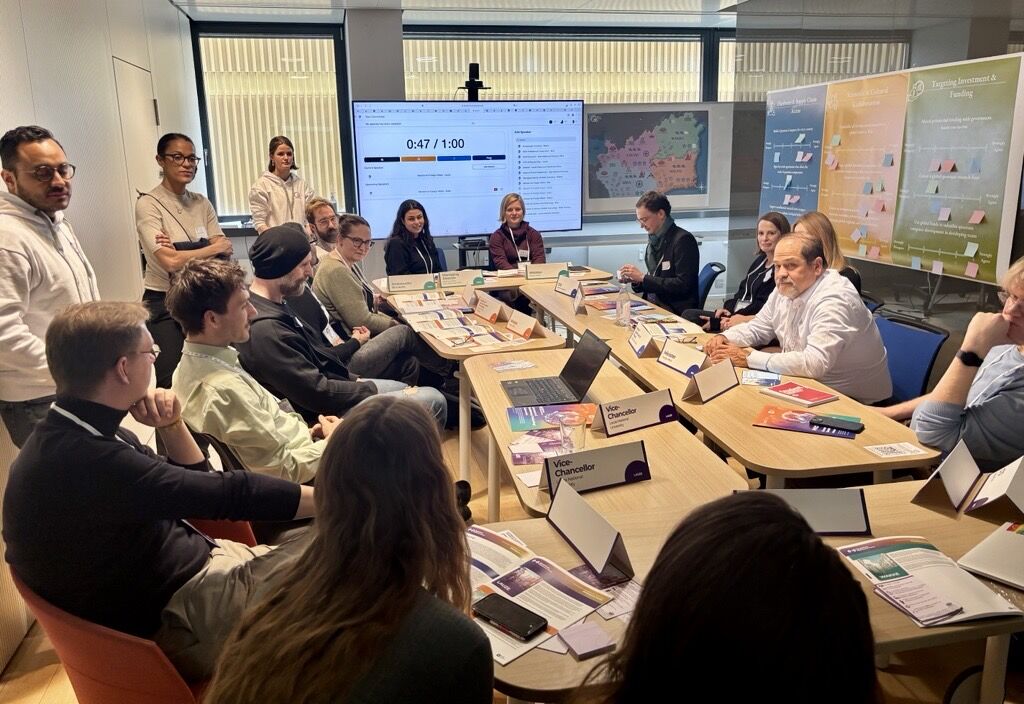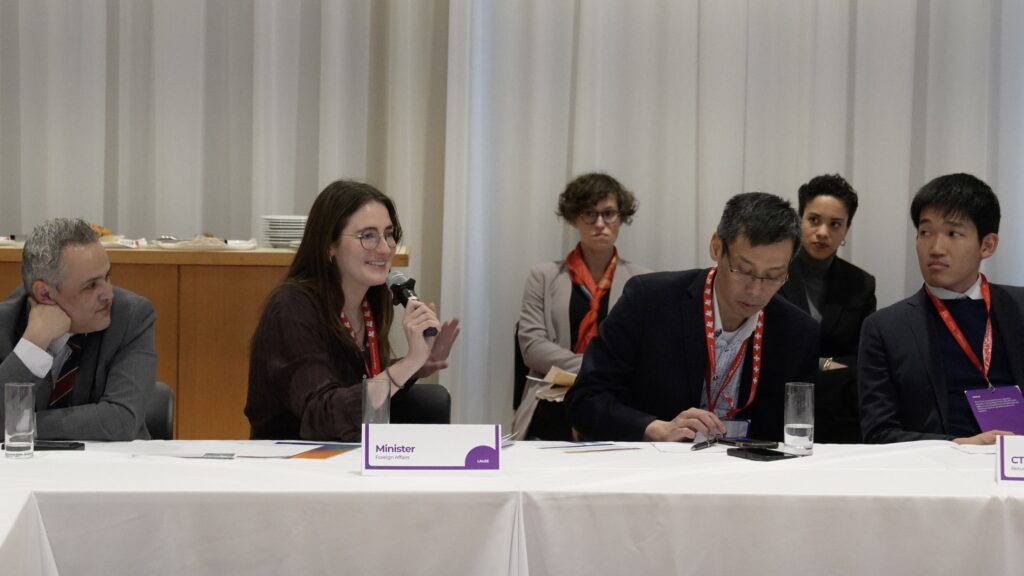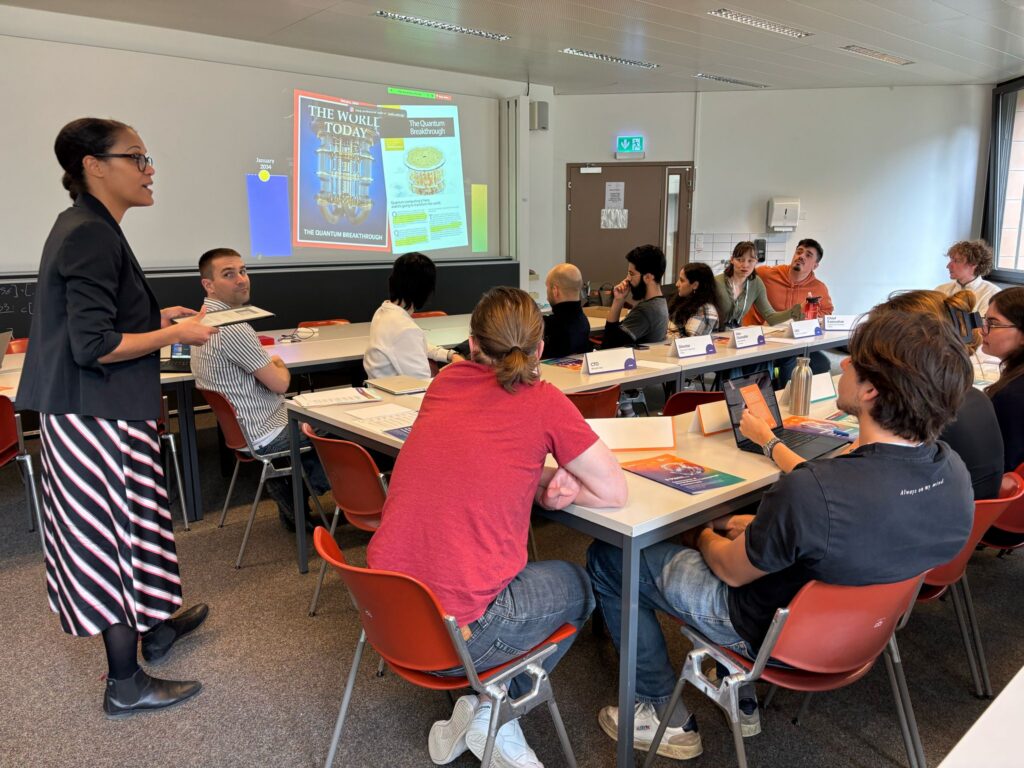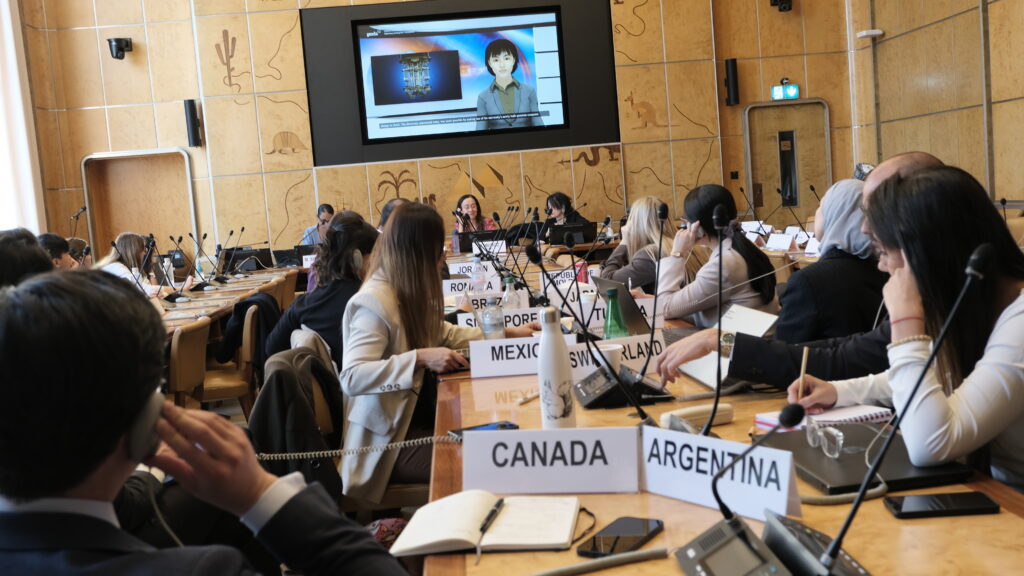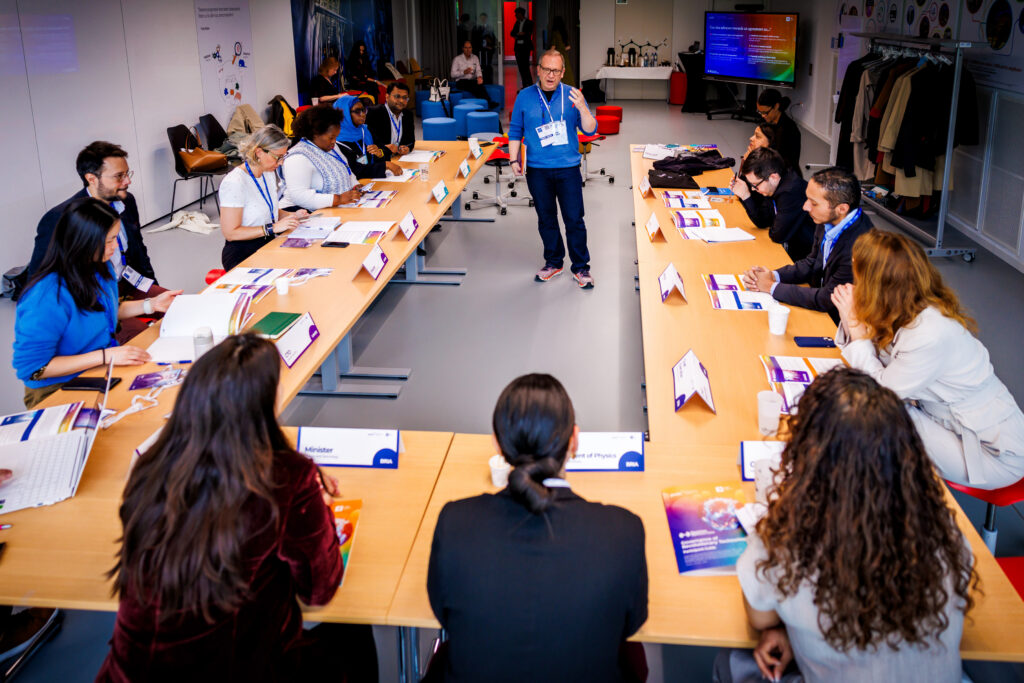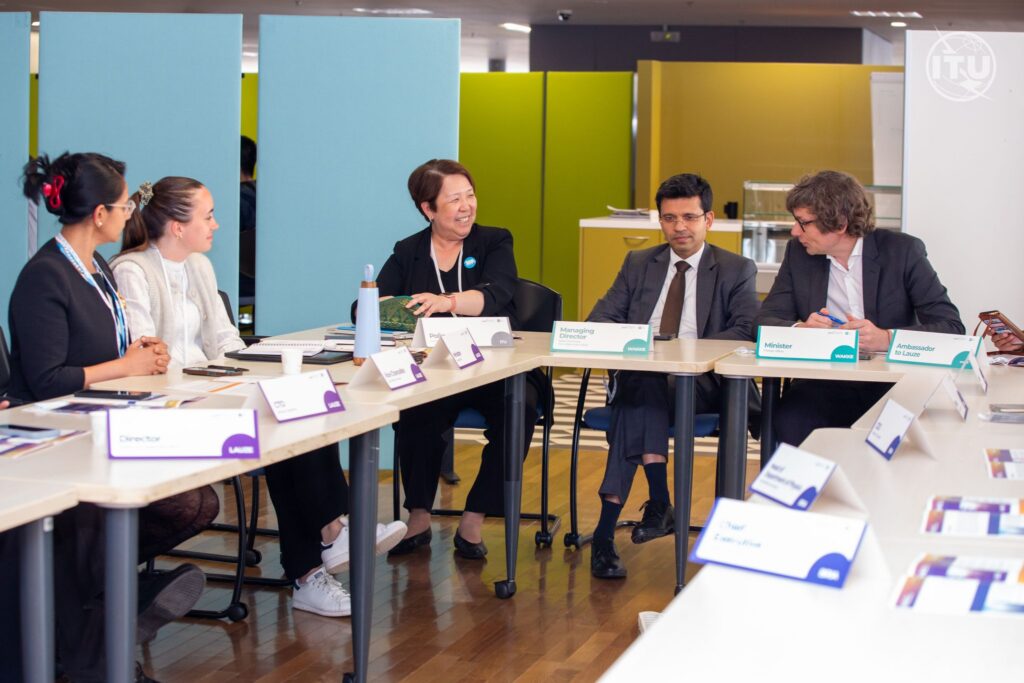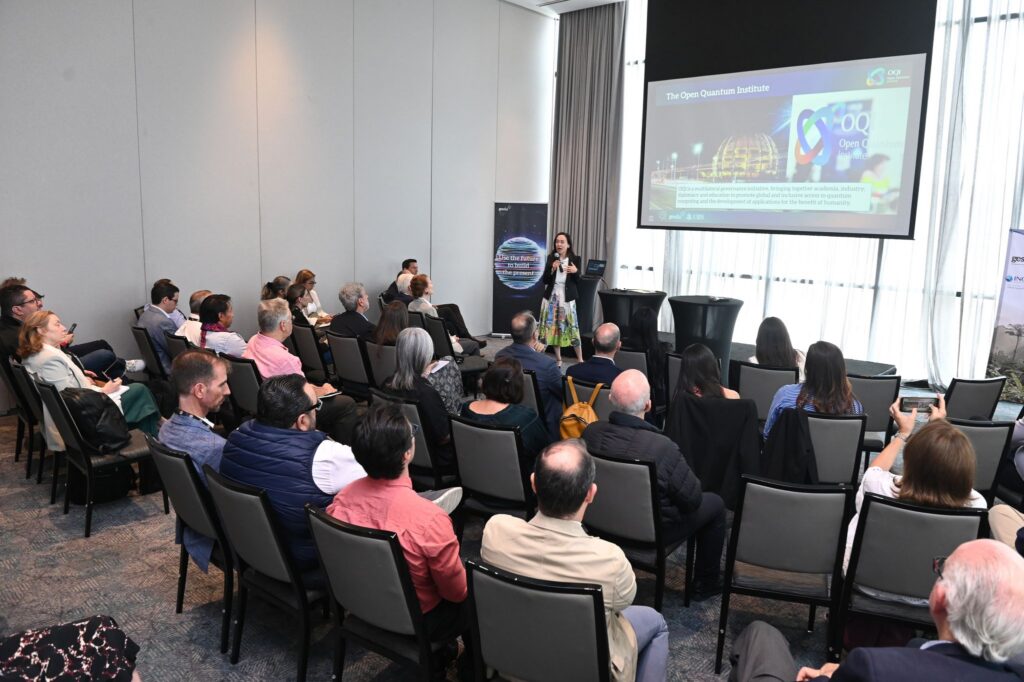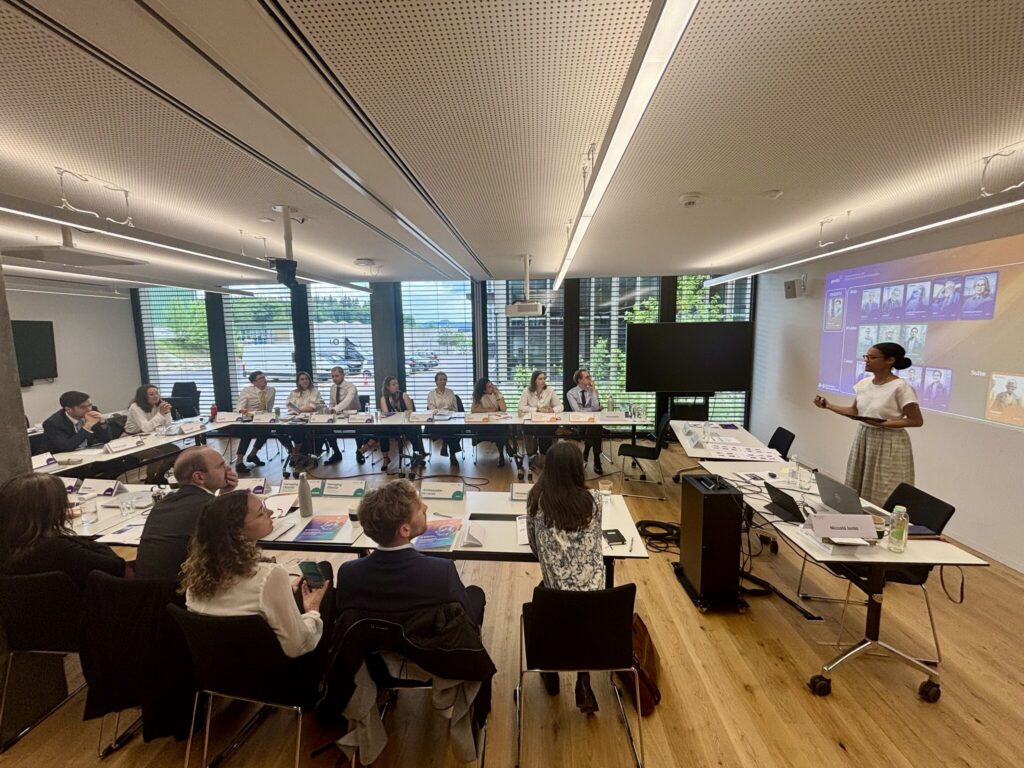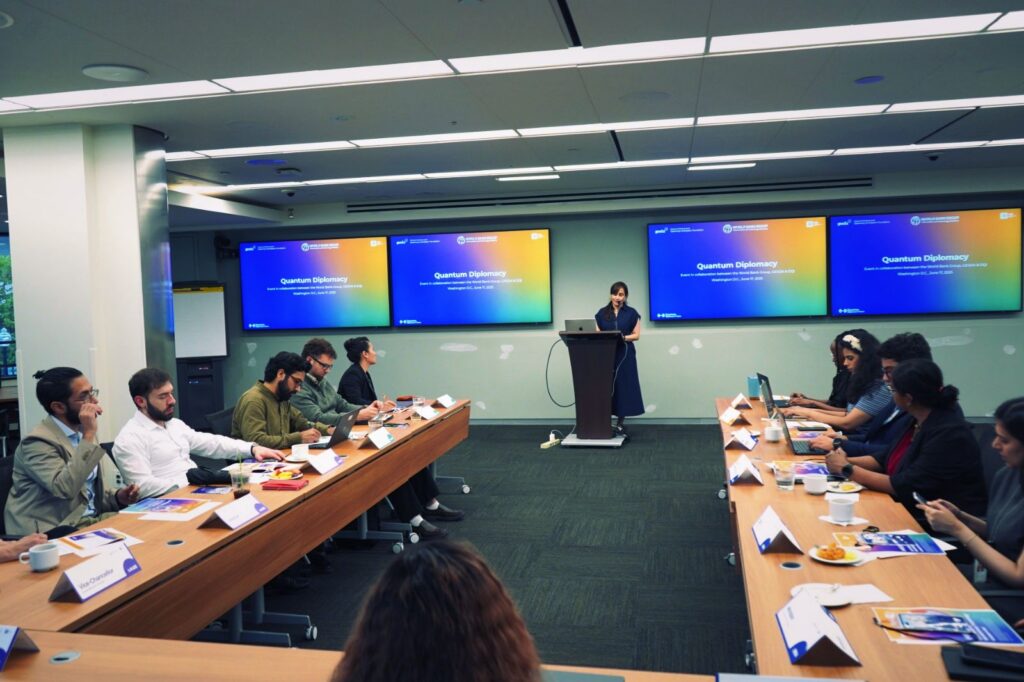Quantum Diplomacy Game
Quantum computing represents a complete change in the way computation has been practised by humanity so far. For specific applications, quantum computers might, in principle, solve problems that are today intractable by conventional computers. How can we make quantum computing benefit everyone, and how could we collectively co-shape the future governance of the technology?
What is the Quantum Diplomacy Game?
An immersive role-play serious game designed to promote science diplomacy and raise awareness and anticipation of the geopolitical implications of quantum computing as an emerging technology.
From the start of the game, participants are fully immersed – each given a character to take on the role of scientists, policymakers and industry leaders. Set in the future, players enter a fictitious world where large-scale quantum computing has been achieved, but the technology is inaccessible to most. Placing multilateral governance at the forefront, the game aims to raise awareness and anticipation of the geopolitical implications of quantum computing as an emerging technology.
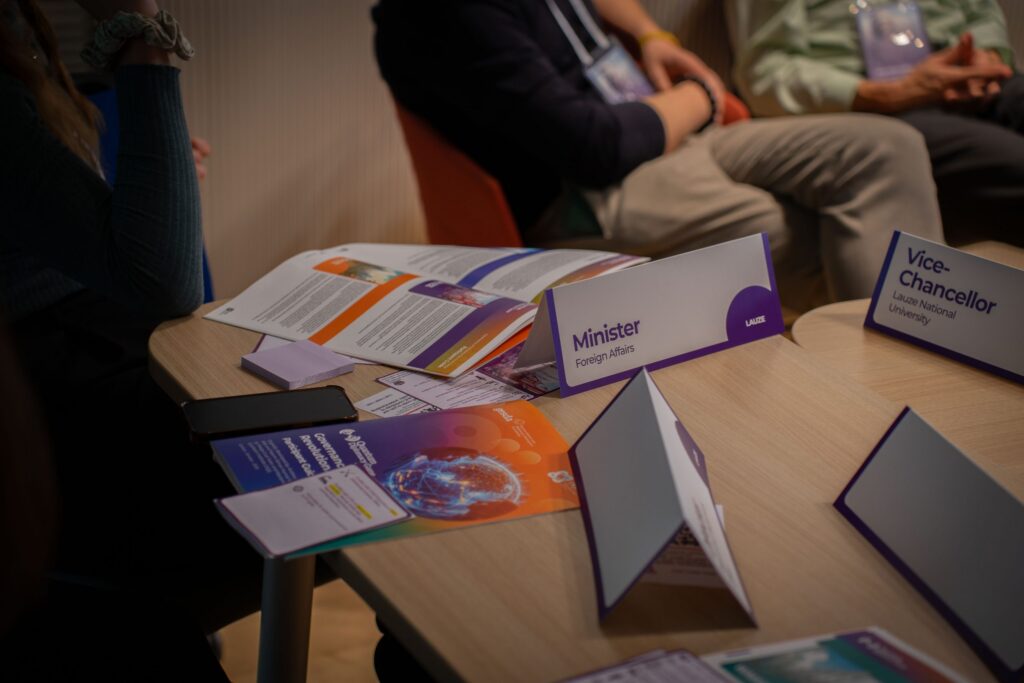
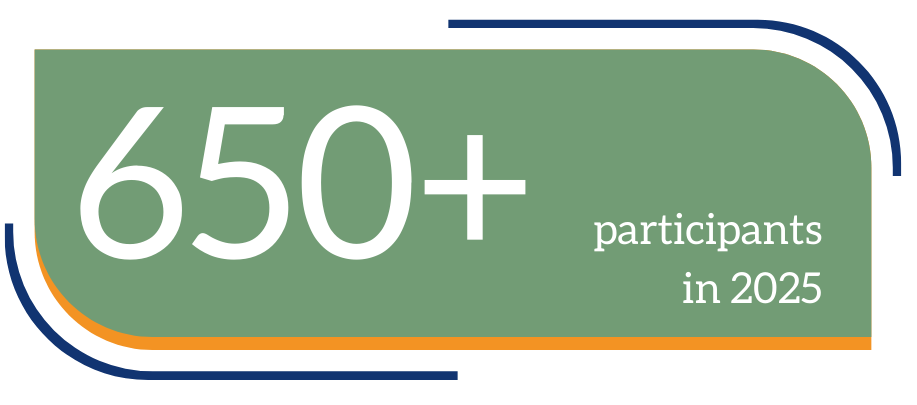
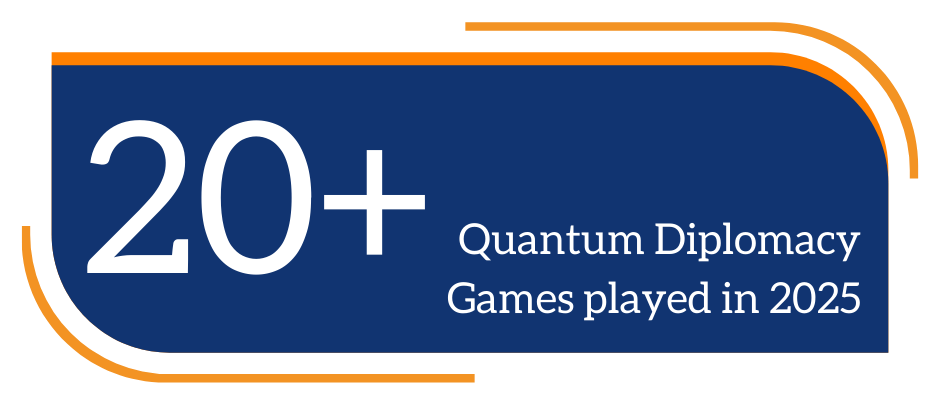
What is a serious game?
A serious game is one that is designed with a purpose that goes beyond entertainment, such as for training or education. These games aim to amplify the engaging aspects of the experience of playing the game to facilitate learning and the development of skills.
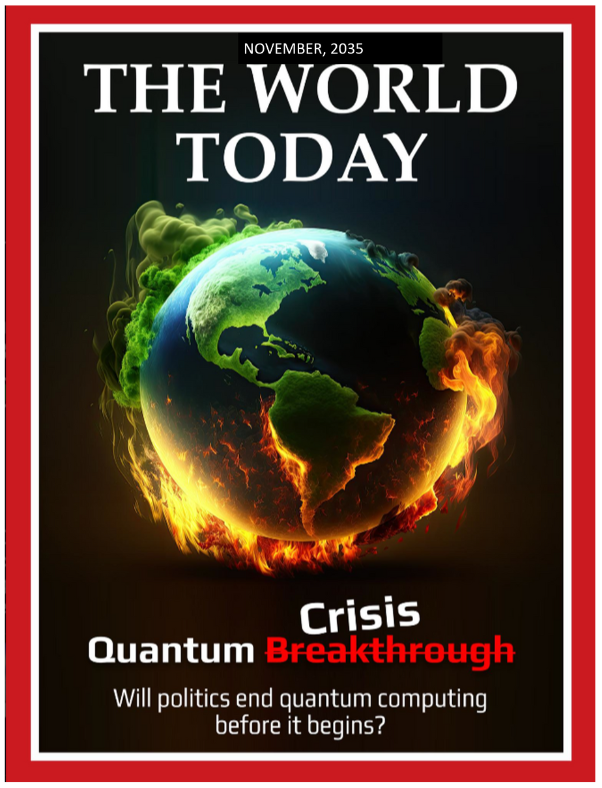
The story
The year is 2035. Large-scale quantum computing has been achieved, but the costs of running these systems are still too high for general commercial use. Quantum computers are capable of processing vast amounts of data faster than conventional computers, making them suited for complex, computationally-expensive tasks. Several nation states have quantum computer systems operated by research institutions, but the technology is still inaccessible for most.
How to play
The game is to be played in-person, lasting from 2 to 3 hours, and overseen by a trained facilitator.
Participants are first presented with a future scenario involving large-scale quantum computing issues on a global scale. They are then guided back to the present to engage in an exercise within a group of eight to ten participants, to discuss what decisions could have been made from the perspective of each of their assigned characters.
The game participants take on the roles of scientists, policymakers, industry players and stakeholders.
The game provides a learning opportunity to see first-hand how emerging technologies such as quantum computing are reshaping international collaboration. As you negotiate alliances and resolve crises, you will gain insights into the geopolitical and ethical factors influencing future society.
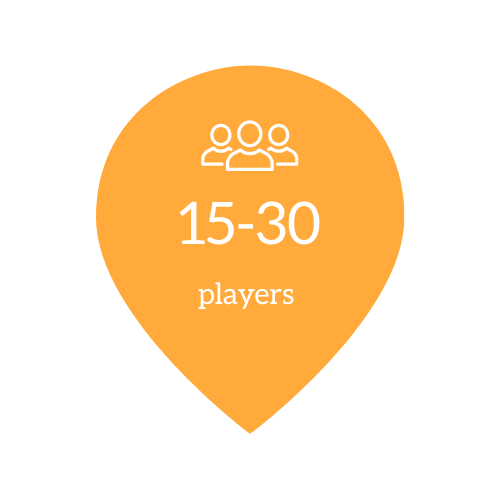
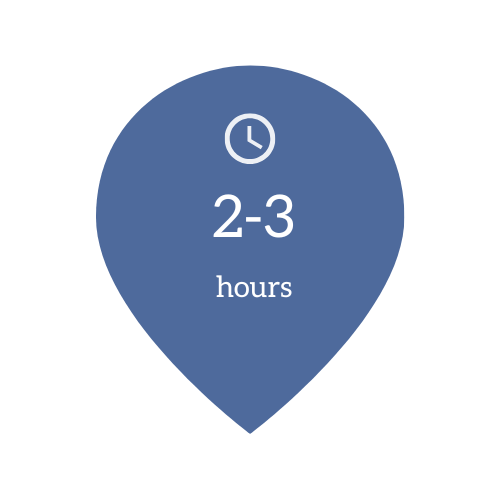
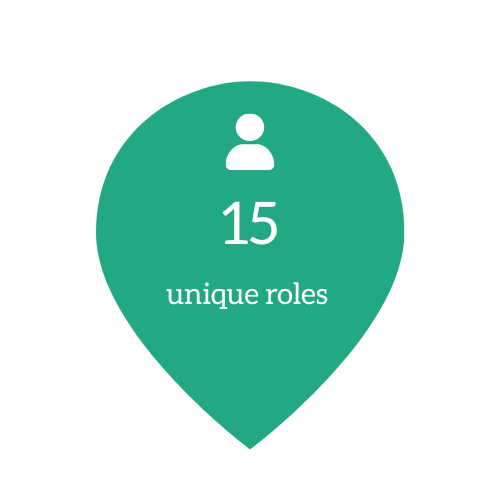
Host the game
Do you want to raise awareness on this topic and share it with your organisation, government, students, and other audiences? All resources are free and available for download and your use from this website.
Please note, accurate reference to the CC BY-NC-SA 4.0 license and GESDA’s contribution is given when you are using the material (refer to end of this page).
Past Quantum Diplomacy Game events
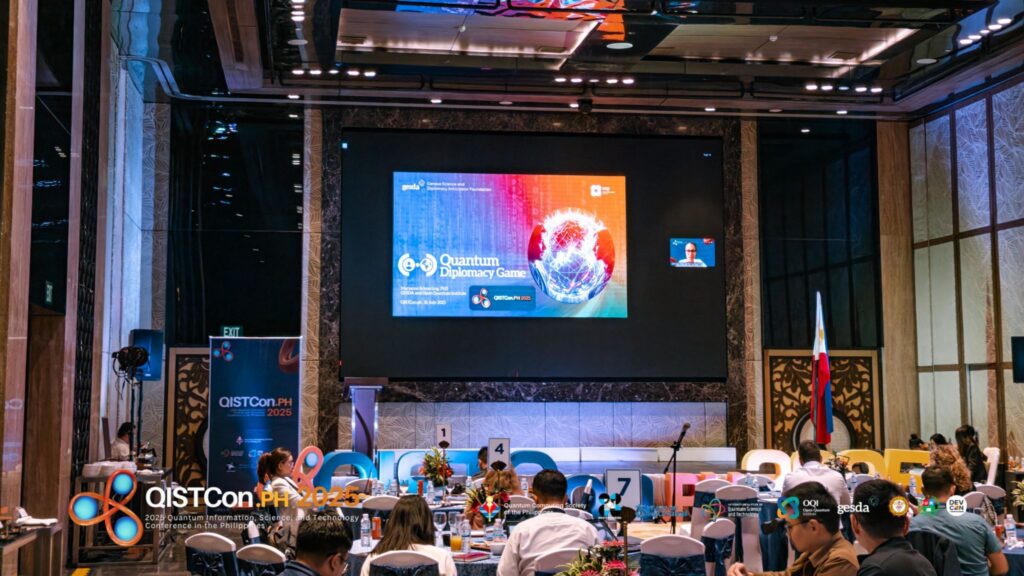
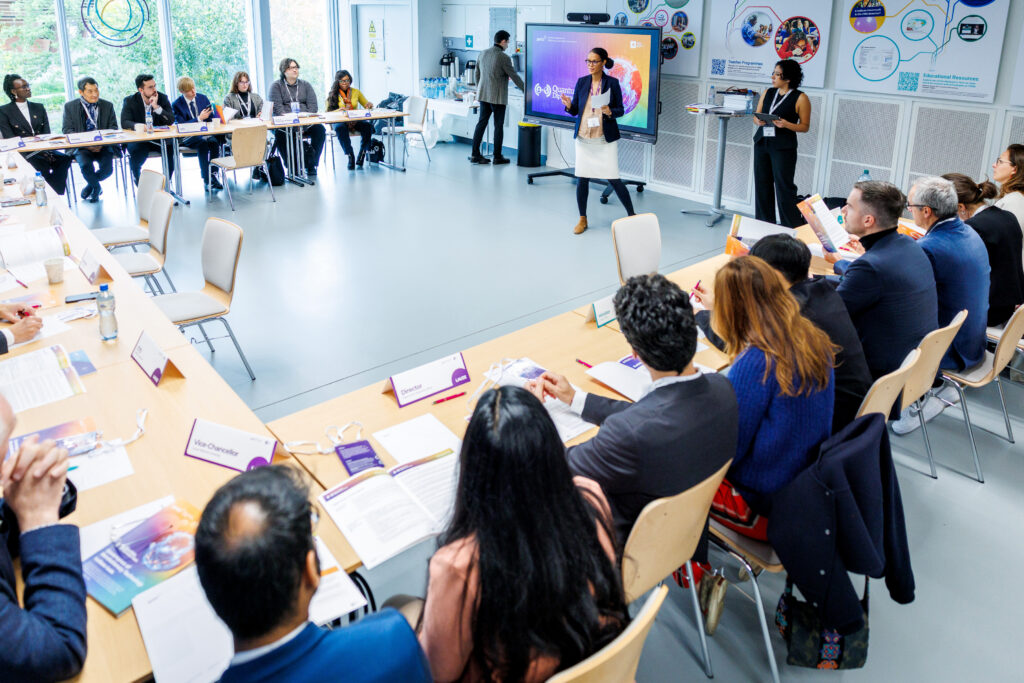
The Quantum Diplomacy Game was originally developed by Andrew Chen, Kristiann Allen, Grant Millls and Naomi Simon-Kumar from the International Network for Governmental Science Advice (INGSA), initiated by the Geneva Science and Diplomacy Anticipator (GESDA) Foundation (cc 2022).The initial work is licensed for non-commercial reuse (CC BY-NC-SA 4.0), with attribution to INGSA and named authors, and link to https://ingsa.org. For more information on the license, click here.
More information on our pipeline of Quantum Diplomacy Games in 2026 is coming soon!

